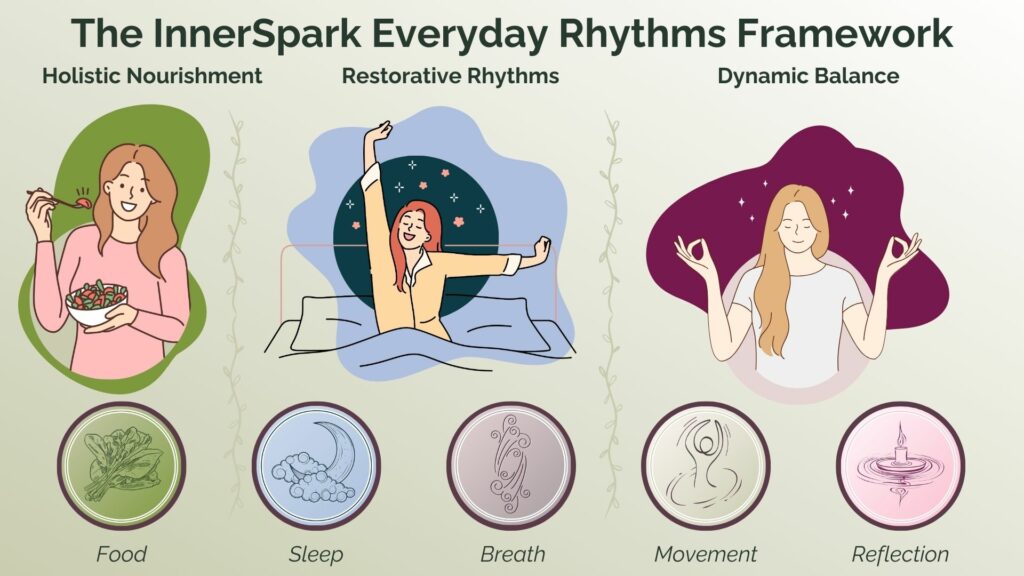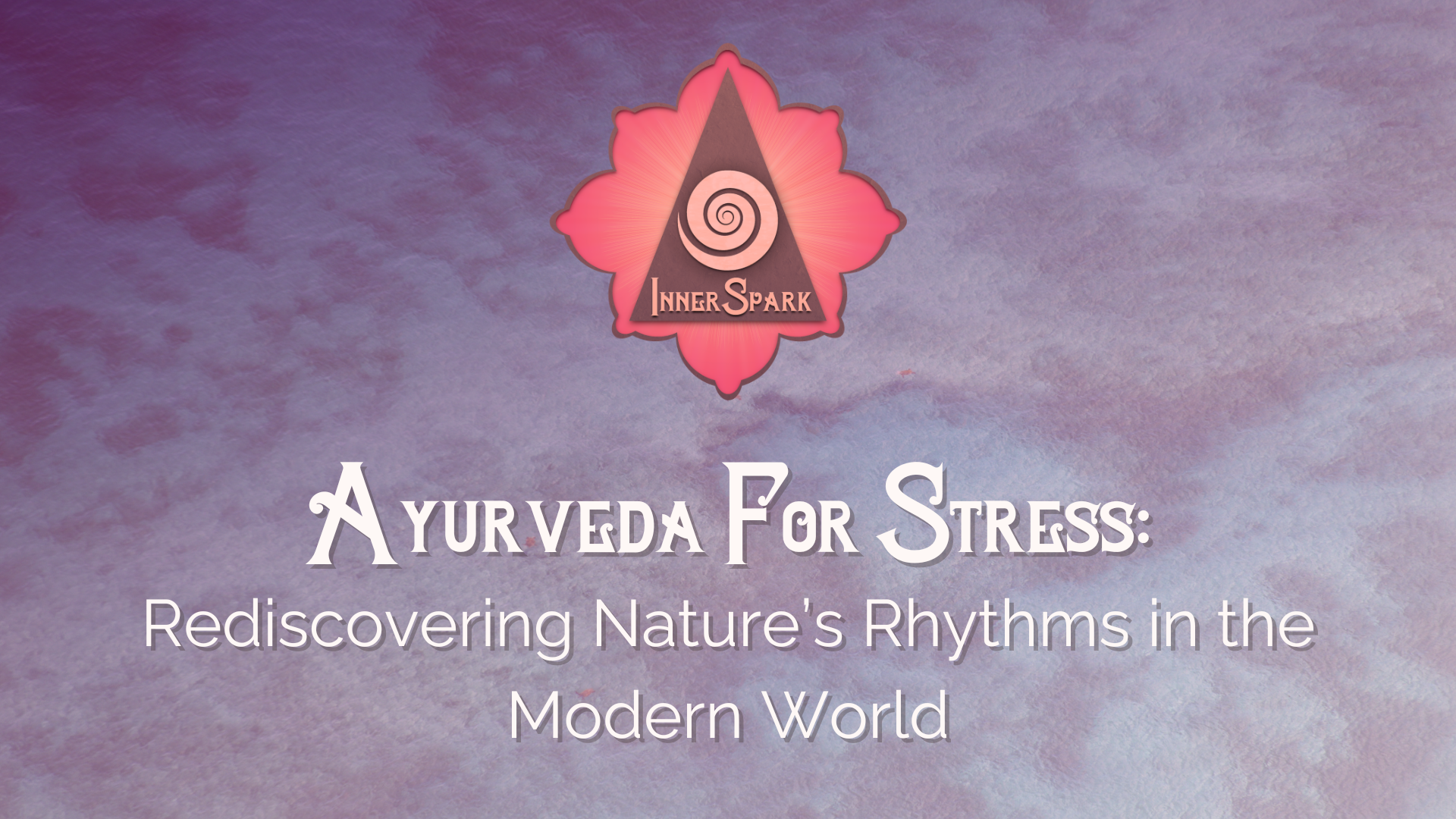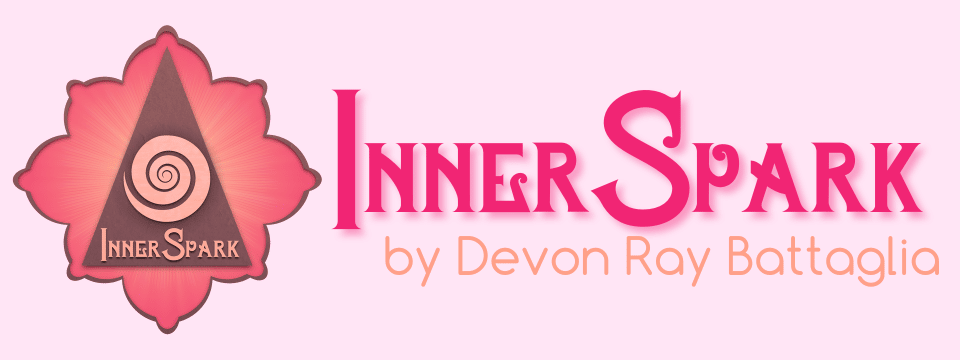In modern life, the impacts of stress increasingly dictate our experiences. Turning to Ayurveda for stress and other modern ailments can help us reconnect with nature’s rhythms and cultivate resilience.
Ayurveda: The Science of Life & Wholeness
Translated as “the science of life,” Ayurveda is a 5,000-year-old healing tradition from India. This system emphasizes balance, healing, and the maintenance of health through natural means. Healing with Ayurveda emphasizes addressing the root causes of imbalance in the body and mind. This approach is especially pertinent today, as it counters the fragmentation and compartmentalization often seen in modern medical practices.
How can we use Ayurveda for stress? It offers solutions that go beyond quick fixes, inviting us to engage deeply with our physical, emotional, and spiritual well-being. By aligning our lifestyles with natural rhythms, Ayurveda helps us navigate the complexities of modern living with grace and vitality.
Whether burdened with chronic stress, impacts of trauma, or societal-induced shame, Ayurveda can guide you to a state of equilibrium. Its practices promote resilience and rejuvenation, drawing on the profound connection between our well-being and the environment around us.
This ancient yet incredibly relevant system teaches us that true health encompasses body, mind, and spirit, and that by nurturing each, we can experience true health.
Understanding Ayurveda’s Core Principles
At the heart of Ayurvedic philosophy are the doshas: Vata, Pitta, and Kapha. These doshas are comprised of the five elements of air and space, fire and water, and earth. These doshas are believed to circulate in the body and govern all activity from our thoughts and behaviors to our physical body. Their balance is critical for health, with everyone having a unique proportion of these doshas that define their constitution.
Vata (air and space) – governs movement and communication within the body.
Pitta (fire and water) – controls metabolism and transformation.
Kapha (earth and water) – responsible for growth and structure.
Ayurveda teaches that health is the balanced coordination of these three fundamental bodily energies. Imbalance leads to physical and emotional disturbances. For instance, an excess of Vata might lead to anxiety and insomnia. Too much Pitta can cause irritability and excess heat in the body.
Healing With Ayurveda & Connecting with Nature
Ayurvedic wisdom teaches that our health is deeply intertwined with the natural world, and this bond is crucial for maintaining balance and vitality.
Ayurveda emphasizes the importance of synchronizing our lives with the natural rhythms of the Earth. This alignment is essential not only for physical health but also for mental clarity and emotional stability. By adhering to nature’s cycles, such as the rising and setting of the sun, the changing of seasons, and the lunar cycles, we encourage our physiological processes to function optimally.
Applying Ayurvedic Principles to Modern Health Challenges
One of the reasons Ayurveda remains relevant today is its comprehensive approach to ailments. It doesn’t just focus on treating symptoms but aims to remove the root cause of disease.
Ayurveda bridges the disconnect from nature by reintroducing us to the rhythms that govern all life. It teaches that our health is dependent on the harmonious interaction between our internal environment and the external world. Through practices such as yoga, meditation, and the use of natural herbs, Ayurveda fosters a reconnection to the natural world. This is essential for healing the root causes of many modern ailments like stress and chronic fatigue. This holistic approach enhances our overall capacity to adapt and thrive in a rapidly changing world.
Ayurveda For Stress: The Big 3 Resilience-Zappers
Stress, trauma, and shame, collectively referred to as the “Big-3 Resilience-Zappers” in The InnerSpark Method are major disruptors of our well-being. These elements cloud our judgment, wreak havoc on our physical and mental health, and disrupt our energetic balance. Ayurveda provides effective strategies for addressing these challenges.
When turning to Ayurveda for stress, it’s important to not just treat symptoms in isolation. The individual is seen as a whole where the mind, body, and spirit must be in harmony. This perspective is crucial when addressing stress, trauma, and shame. These are not just emotional states but conditions that affect the physiological and spiritual aspects of our lives.
Ayurveda For Stress
When using Ayurveda for stress, it is recommended to adjust lifestyle practices. Ayurveda approaches stress and anxiety by looking at the root causes. These root causes often include imbalances in lifestyle, diet, and mental activity. Practices such as yoga and meditation are commonly prescribed to restore mental calmness and physical non-reactivity.
Ayurveda For Trauma
Ayurveda recognizes that trauma leaves a lasting impact on the body’s tissues and disrupts the flow of vital energy. As emotional well-being is crucial to physical health, it suggests nurturing activities that restore balance and enhance self-esteem.
Ayurveda For Shame
Ayurveda views shame as a disturbance of the heart’s energy, leading to emotional withdrawal and suppressed vitality. Heart-nourishing practices, including somatic (body-based) emotional release therapies, support the healing of shame, fostering a renewed sense of self-acceptance and love.
Ayurveda teaches that the health of the mind is inseparable from the body and spirit. By addressing imbalances through a holistic lens, Ayurveda ensures that healing from stress, trauma, and shame is comprehensive and grounded in the natural wisdom of the body. This approach not only alleviates symptoms but also restores the individual’s innate capacity for joy, resilience, and vitality.
Ayurvedic Practices for Stress & Modern Living
Ayurveda encourages aligning daily routines with the natural cycles of the earth. Using Ayurveda for stress it’s profoundly helpful to create regular rhythms and synchronization with nature when using Ayurveda for stress. Things like waking, sleeping, eating, and exercising in accordance with the rhythms of nature can help restore health and vitality.
Daily Routines (Dinacharya)
Ayurveda advocates for Dinacharya, or daily routines, which involve waking, eating, working, and sleeping at consistent times. These routines help stabilize the body’s internal clock and enhance the natural flow of energy through the body, reducing stress and increasing vitality.
Diet and Digestion
Ayurveda emphasizes the importance of a diet that balances the doshas and improves digestion, which is crucial for mental clarity and emotional stability. Foods that are fresh, whole, and seasonal nourish the body at a deep cellular level and mitigate the effects of stress and anxiety. Incorporating a diet rich in whole foods, seasonal fruits, vegetables, and a balance of the six tastes can dramatically improve digestion and overall health. Simple changes like eating a larger lunch when digestive fire is stronger, and a lighter dinner can align you with natural rhythms and boost energy levels.
Nature Connection
Connecting with nature’s cycles, such as waking with the sunrise and winding down at sunset, aligns our biological rhythms with the natural world, enhancing our ability to cope with life’s stresses and changes.
Seasonal Living
Adjusting diets and activities to match the seasons helps to harness the particular energies each season offers. For example, consuming cooling foods in summer and nourishing, warm dishes in winter aligns our internal environment with the external, enhancing our ability to thrive throughout the year.
Reflection and Meditation
Regular practice of reflection and meditation helps manage stress and enhances mental clarity. Even a few minutes of daily meditation can restore a sense of calm and balance in a hectic day.
Yoga and Physical Activity
Tailoring yoga practices to suit individual needs and seasons can help maintain physical health and mental well-being. However you move, find a practice that is sustainable and enjoyable.
Ayurveda for stress and other ailments offers a treasure trove of practices that can be seamlessly integrated into the hustle and bustle of modern life. These practices focus on restoring balance and enhancing vitality by aligning our daily routines with natural laws, which is crucial for mitigating the pressures and health issues of contemporary life.
The InnerSpark Method: Ayurveda-Inspired Everyday Rhythms
The InnerSpark Method, inspired by Ayurvedic principles, provides a practical framework for integrating ancient wisdom into modern life, enhancing well-being across physical, emotional, and spiritual dimensions.
This method intertwines Ayurvedic wisdom with contemporary practices to address the pervasive ailments of today’s fast-paced world, such as stress, anxiety, and chronic fatigue. The InnerSpark Method: Everyday Rhythms program is more than a course. This experiential community guides you in adopting five key daily practices for lifelong resilience, vitality, and joy!
- Whole Foods: Learn to nourish yourself with whole, real foods and care for your digestion on a physical and energetic level.
- Deep Sleep: Align your sleep cycles with natural circadian rhythms to rejuvenate the mind and body. Learn the art of deep rest.
- Breath Practice: Learn basic, accessible, and powerful breathing techniques to enhance life force and aid in emotional regulation and stress management.
- Movement: Come to love and celebrate moving your body in a way that is supportive and encourages balance.
- Reflection: Time for reflection promotes deep introspection and an unwavering, lifelong connection with your InnerSpark.
By incorporating ancient Ayurvedic principles with modern needs, The InnerSpark Method: Everyday Rhythms provides tools that help individuals truly thrive. Through daily practices that reflect Ayurvedic wisdom, individuals learn to maintain their internal equilibrium, enhancing their ability to thrive in the face of contemporary stressors.
This holistic integration ensures that individuals not only manage symptoms but also embrace a lifestyle that supports long-term health and happiness, making ancient Ayurvedic wisdom profoundly relevant in our modern context.

Conclusion: Ayurveda as a Path to Resilience and Healing
Healing with Ayurveda provides a comprehensive path to holistic well-being. By aligning our lives with Ayurvedic principles, we can address and heal the root causes of modern ailments, from stress and anxiety to chronic fatigue and beyond.
Ayurveda teaches us that true healing is holistic, addressing body, mind, and spirit. Its practices not only treat symptoms but also foster an environment within and around us that promotes lasting health and resilience. This holistic approach ensures that we are equipped to handle the challenges of modern life with strength and grace.
The InnerSpark Method
Timeless Wisdom to become Naturally Resilient
Transform life's storms and cultivate peace, resilience, and vitality with Nature's wisdom.
Dive deep into nature’s rhythms, unraveling from the complexities and strains of modern life, and align yourself with the ebb and flow that has sustained life for millennia.
Drawing from nature, our eternal mentor, we glean lessons of steadfastness, flow, and unity.
But as the digital age surges forward, our intimate connection to these timeless rhythms is diminishing, causing our physical, emotional, mental, relational, and spiritual well being to teeter.
The InnerSpark Method bridges that gap, guiding you back to your innate resilience and rhythm, reigniting your zest for life and sense of purpose.
Come discover a whole-person, trauma-informed system of Nature's self-care to rekindle natural cadences across all dimensions of your being - whether it's the physicality of daily routines, the depths of emotional resilience, the realms of mental clarity, the vibrations of energy, the art of relationships, or the ethereal world of spirituality.
More Holistic Living + Healing:
-

Nature’s Medicine Bag
Physical body and life challenges are simply the manifestation of dysfunctions at the subtle level of your being.
-

Ayurveda For Stress
In modern life, the impacts of stress increasingly dictate our experiences. Turning to Ayurveda for stress and other modern ailments can help us reconnect with nature’s rhythms and cultivate resilience. Ayurveda: The Science of Life & Wholeness Translated as “the science of life,” Ayurveda is a 5,000-year-old healing tradition from India. This system emphasizes balance,…


0 Comments